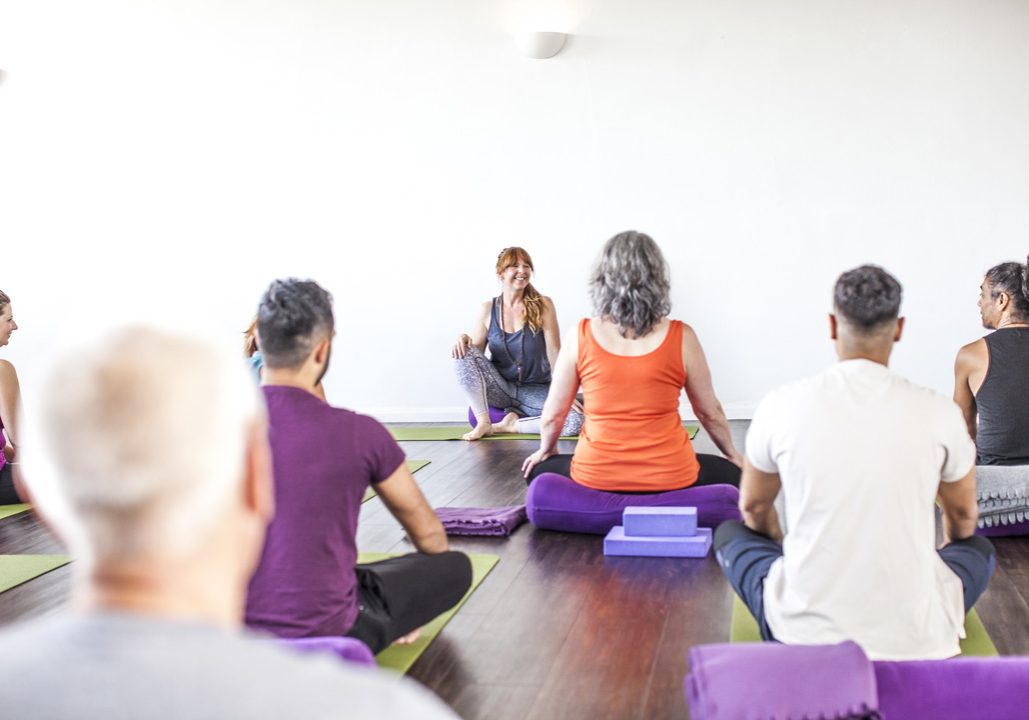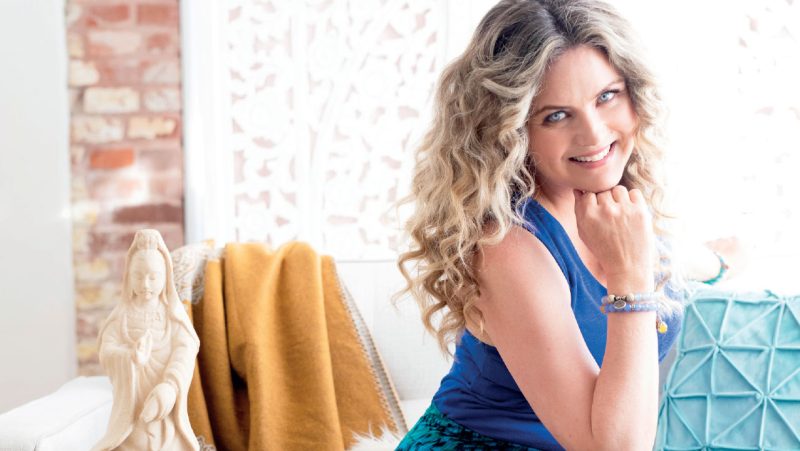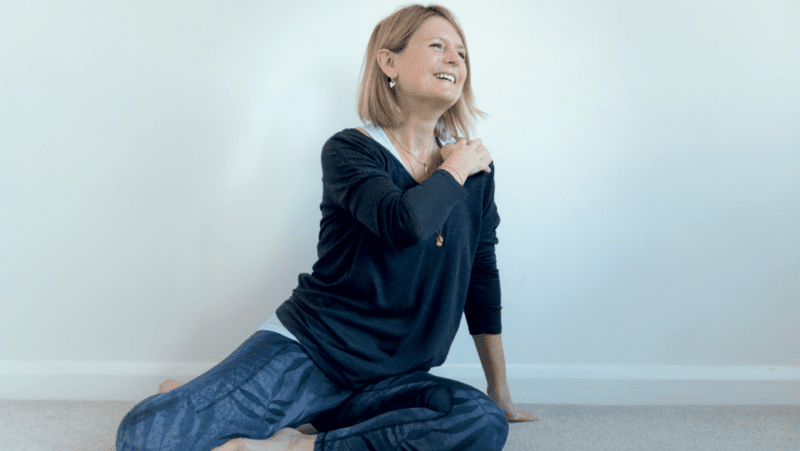
Learning beyond the learning
A yoga teacher training course is also a personal odyssey. By Deborah Berryman
I’d been practicing yoga for six years before embarking on a YTT. It wasn’t because I wanted to teach, I simply wanted to deepen my practice and learn more about the big shifts I felt happening. Yoga gave me the sense of coming home, but to a home I’d never known. The kind no one can take from you. I had no intention of teaching, because I had a huge fear of public speaking, of making myself vulnerable in that way. But I felt stuck and knew things needed to change, I just didn’t have a map, or the right tools. Teacher training offered three powerful lessons to take away.
1. The relationship you’re having with yourself is the foundation of all the relationships in your life. Svadhyaya means self-study, and it’s one of the ethical foundations of the yoga practice. If you don’t understand why you do the things you do, if you don’t know what lights you up, scares or inspires you, then you are lost. But that doesn’t mean you’re stuck. Yoga gives you a set of tools so you can go about the business of knowing yourself in an honest and compassionate way. Until you get right with yourself, nothing else in your life will flourish the way it could.
2. The way things look on the outside will never fill a hole that exists on the inside. I’d spent years trying to make things look perfect and I’d taken that ideology with me onto my mat. If I fell out of a pose, I cursed myself and I’d never take Child’s Pose to rest. Ahimsa means non-harming, and it’s the first of the five Yamas, or social contracts. Examining the way you’re speaking to yourself is eye-opening. A lack of self-compassion often means we perpetuate a cycle of blame and shame and make our unhappiness someone else’s fault.
By accepting the humanness in yourself, you can do the same with others. Things shift from, ‘How can I get happy?’ to ‘What am I bringing to the table?’ When you start to think like that, you also take your power back.
3. Seeing things clearly is the key to your freedom. Avidya is one of the Kleshas, or obstacles in the path to our freedom, and it means we’re in a fog, created by identifying strongly with our likes and dislikes. By becoming aware of and letting go of our attachment to these, we’re tapping into the energy underneath our ideas about who we are, and just allowing ourselves to be. How you ride the ups and downs of life has a lot to do with how you’re going to feel. If you cling and grip and try to kid yourself about what’s happening, you’re going to suffer. If you attempt to manipulate or control people, you’re going to suffer. Yoga gives us the tools to face reality as it is, to accept, care and then act. And there’s a lot of power in that.
If you’re ready to dive in, a YTT might be exactly what you need. It’s not for the faint hearted, and these lessons I’ve mentioned are not even the tip of the iceberg. In order to take these concepts and really understand them, you have to immerse yourself and live them. Yoga practice is a beautiful guide, a set of tools, philosophy, art, and way of being in the world. Few things give me greater joy than sharing the tools and ideas that have changed my life.
Deborah Berryman is the teacher training course director and owner of Whitespace Yoga Studio in Milton Keynes (whitespacestudio.co.uk)







